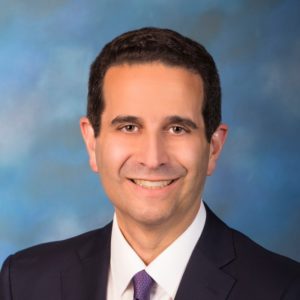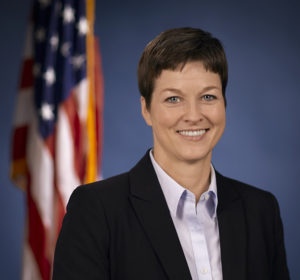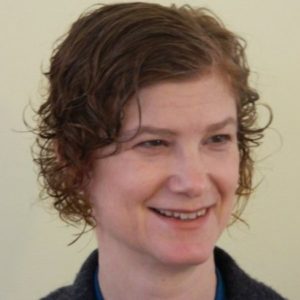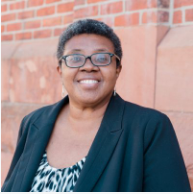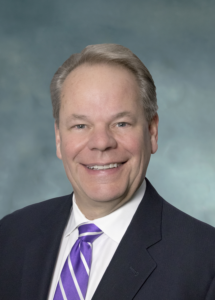What ever happened to the North Philadelphia Health Enterprise Zone?
 March 2, 2021
Category: Featured, Long, Purpose
March 2, 2021
Category: Featured, Long, Purpose
Five years ago, there was a major but now mostly forgotten health announcement.
A group of state and local dignitaries gathered on October 20, 2016 at Project HOME’s Stephen Klein Wellness Center to proclaim the creation of the City’s Health Enterprise Zone (HEZ) — a stretch of North Philadelphia that included 15 of the city’s poorest zip codes and some of the city’s sickest residents. The zone was also home to five hospitals, four heath systems, two universities and 10 health center organizations with 28 health center sites.
There was Secretary of the Department of Human Services, Ted Dallas, Temple University President Richard M. Englert, Mayor Jim Kenney, Secretary of Education Pedro Rivera and Einstein Health Network CEO Barry Freedman, who was an early champion of a city HEZ. There were representatives from the Chamber of Commerce for Greater Philadelphia and legislators. There were grassroots activists and public health advocates.
It was a powerful group focused on a single goal of collaborating to develop a coordinated response to address residents’ health needs, especially the super utilization of emergency rooms which is a significant driver of health care costs and usually an indication of chronic health conditions and basic needs deprivations.
A third of the zone’s residents lived below the poverty level and about 300,000 of them were Medicaid recipients — 13 percent of the state’s entire Medicaid population. They suffered higher rates of obesity, diabetes and heart disease. And decreased life expectancy — up to 20 years shorter compared to their counterparts in wealthier zip codes.
“Is there a better way to provide healthcare for the residents of North Philadelphia? That’s the question that the HEZ is designed to answer,” Dallas said at the time. Rivera announced that his department would make $1.5 million available to deliver healthcare in cooperation with Kenny’s Community Schools Initiative. The Chamber of Commerce promised to help connect zone residents to jobs.
There was no staff or dedicated funding for the HEZ, but no one questioned that. Instead all the work would be done through volunteer committees divided into four areas — health, education, community, and technology — and their first task was to do a “gap analysis” of the area’s current healthcare system.
Joanne Grossi, the then Philadelphia-based regional director of the U.S. Department of Health and Human Services for Region III, told the Philadelphia Inquirer “I’m really applauding the city of Philadelphia and the state for what they are doing here. I think it’s really innovative and it’s really important.”
A few months later, Dallas would call the HEZ one of the major successes of his agency in 2016.
For that brief moment in time, media coverage was extensive and then the journalists went away.
A year later, Freedman of Einstein sat with Philadelphia Magazine for a first-year HEZ update. He said that the HEZ had conducted a variety of focus groups, and reports from these would be forthcoming, but he didn’t have anything substantial about the HEZ’s first year work to report. He learned, he told the reporter, that there would be no quick fixes.
That was the first and last update of the HEZ’s progress.
In 2018 there was an announcement that the Pennsylvania Department of Health made $12 million available to the members of the HEZ. There was no public report of how the money was distributed and no press releases issued by the HEZ. In fact, the HEZ’s website has been taken down.
In 2019 DHS Secretary Teresa Miller, Dallas’ successor, announced announced a total of $7.3 million for zone grant funding. In February that year she provided $3 million to expand community health worker training. Later she announced $4 million to several local nonprofit agencies with existing partnership and services in the zone, including Bebashi-Transition to Hope, Project HOME and the Health Federation of Philadelphia. This included funding to expand home visiting services, prevent evictions and support jobs development for people on public assistance.
And then, in 2020, the pandemic hit.
Had the HEZ become what it set out to be, there would have been a three-year head start on coordinating healthcare services for a poor community of color.
Instead COVID-19 devastated the residents of HEZ and Einstein and Temple were overrun with patients. According to Bill Ryan, Einstein’s vice president of governmental affairs, between Einstein and Temple hospitals the patient load was the second highest in the country.
So, what has happened to the HEZ and why did it fizzle?
“I wouldn’t say it fizzled,” countered Suzanne Cohen, senior director of population health for the Health Federation of Philadelphia. “I would say that it morphed into something different.”
Cohen, who was only tangentially involved in the creation of the HEZ, said that the North Philadelphia HEZ is no longer the broad convening organization that received all the fanfare back in 2016 but is now a grant-funded program administered by the state Department of Human Services.
The Health Federation received a grant to help build capacity by training community health workers and peer support workers. They are also focusing on addressing diabetes and prediabetes through the implementation of a prevention program and are implementing a database for comprehensive social service referrals.
Bebashi-Transition to Hope selected food insecurity as its HEZ focus and runs in-school pantries throughout the area, explained Janice Tosto. Tosto came to the city from New York three years ago to become Bebashi’s HEZ project coordinator. She admits she does not know about HEZ’s early promises, just its current realities.
“We’re doing good work even in spite of COVID,” said Tosto who added the number of people her pantries served doubled from 2019 to 2020. “One of our school pantry principals in the 19134 zip code said a lot of parents had lost jobs because of COVID.”
Still, it begs the question — what happened to the HEZ? Why didn’t it live up to the initial hype?
Ryan, then Einstein’s assistant vice-president for governmental affairs, was also in the room in 2016, and he ticked off the problems.
The HEZ was buffeted by change. There were the personnel changes that inevitably come with new administrations. Department of Human Services, which manages Medicaid, moved from Dallas to Miller. Rivera is no longer Secretary of Education. Also, HEZ champion Freedman retired from Einstein. But also, Hahnemann went bankrupt and St Christopher’s Hospital for Children was sold.
Ryan also acknowledges that that HEZ never had a dedicated staff, just volunteers squeezing the work in amid other assignments. Nor he concurs, was there a clear and public accountability mandate.
And then, Ryan said, the pandemic hit. Both Cohen and Ryan agree that a robust HEZ may have blunted some of the devastation that the pandemic wreaked on North Philadelphia residents.
Ryan, who jokingly calls himself “the last man standing” isn’t prepared to throw in the towel on the HEZ’s original goals. He said he is personally invested in the HEZ model and wants to see it revitalized — after the pandemic.
“The HEZ is a passion of mine…and there is still a lot of interest out there,” Ryan said.
A DHS spokesman, who described HEZ to Generocity as a plan rather than a committee, said: “We are exploring options on ways to renew community health worker grants to continue this valuable work.”
 Generocity is one of 22 news organizations producing Broke in Philly, a collaborative reporting project on solutions to poverty and the city’s push toward economic justice.
Generocity is one of 22 news organizations producing Broke in Philly, a collaborative reporting project on solutions to poverty and the city’s push toward economic justice.
Project
TRACETrending News







